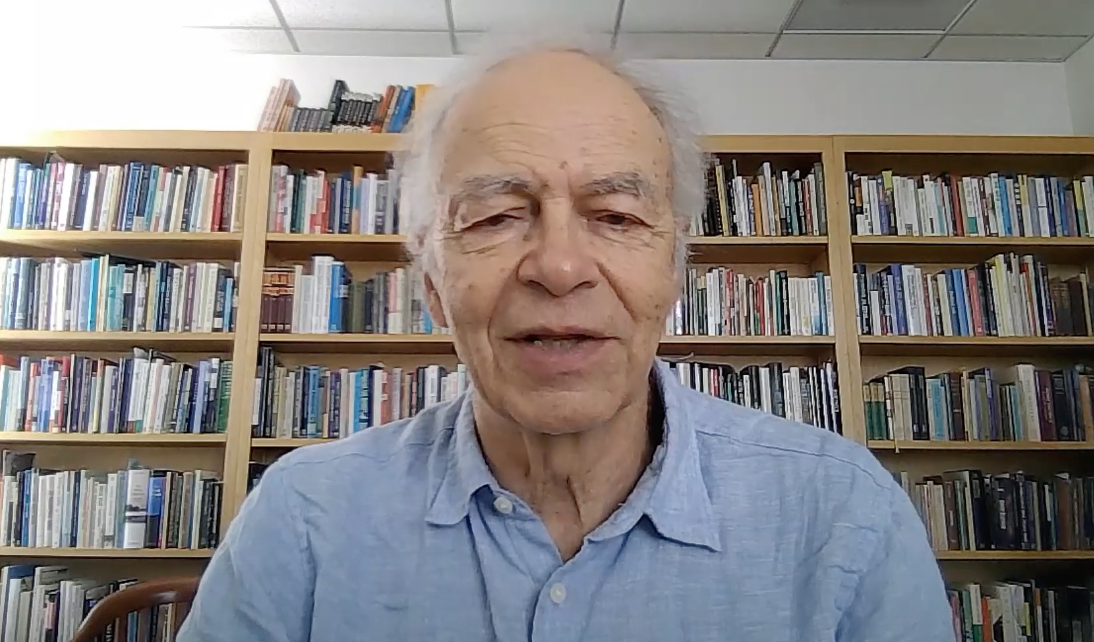
Rhodes College’s philosophy department hosted a conversation with controversial bioethicist Peter Singer Wednesday, as planned, despite opposition to the event from faculty members from several other programs.
Singer has consistently argued that parents should have the right to choose euthanasia for their severely disabled infants.
Prior to the virtual event, billed as a talk on pandemic ethics, the department of anthropology and sociology and the Africana studies program sent an open letter to the campus expressing “deepest dismay” that Singer would be welcomed, along with concern that the event could worsen the campus racial climate. The letter cited Singer’s “longstanding advancement of philosophical arguments that presume the inferiority of many disabled lives.” The “creation of a hierarchy of lives as a justification for the allocation or denial of limited resources (whether ‘pleasure,’ medical care, insurance, etc.) is a logic that has a long and violent history,” and one that underlies eugenicist arguments, the letter also said.
The faculty letter further questioned why Singer’s talk included no disability scholars, given that COVID-19 “is one of the most profound disability rights issues of our lifetimes.”
A group of Rhodes historians sent the campus a similar letter of its own, saying, “Hypothetical philosophies on morality cause real violence,” and that Singer’s “blatant inhumanity has no place in serious academic exchange here at Rhodes.”
While Singer's thoughts on disability invite criticism, more of his work is focused on what he calls animal liberation, and on global poverty. Singer, a vegetarian, has previously warned that human's treatment of animals, especially livestock, makes pandemics more likely. He's also advocated for equitable vaccine distribution around the globe.
In response to various calls to cancel or alter the format of the event, Rhodes said in a statement that “our institution’s spirit of supporting expressive speech does not prohibit Professor Singer’s participation in this virtual panel. At the same time, our community’s values compel us to denounce some of the views he has expressed repeatedly over years through various addresses, writings, and media interviews.”
The statement included a series of affirmations, including the “strong belief in an inclusive, diverse, equitable, and accessible community -- as outlined in the college’s IDEAS framework -- one in which the worth and dignity of all persons is championed and supported.”
Rebecca Tuvel, chair of philosophy at Rhodes, responded via email to some initial criticism of the event, according to the philosophy blog Daily Nous.
“Serious intellectual exchange about matters of significance cannot avoid sometimes causing anger, offense, and pain and no one should be cavalier about that fact. It is not clear to us, however, what follows from our colleague’s understandable expression of disturbance at some of Professor Singer’s views,” Tuvel wrote. “Do those views disqualify Singer from participating in the exchange of ideas that ought to occur at a liberal arts college? If that is the conclusion, we respectfully disagree, for its premise is that ideas that cause anger and dismay ought not, for that reason, be part of the exchange and that premise, we think, is incompatible with our mission to teach students how to engage in productive dialogue even, and indeed especially, with thinkers with whom they vehemently disagree.”
A speak-out in support of people with disabilities took place earlier Wednesday at Rhodes, according to Daily Nous.
Singer, the Ira W. DeCamp Professor of Bioethics at Princeton University, told Inside Higher Ed via email that it’s “disappointing” these Rhodes faculty members “place so little value on the role of a university education in challenging students to think about some of the underlying presuppositions of positions they hold, that they seek to prevent the expression of views with which they disagree.”
He continued, “Clearly, these faculty have not thought very deeply about these questions. They say that they object to my advocacy of allowing parents to choose euthanasia for severely disabled newborn infants (as they may do in the Netherlands, for example, in accordance with the Groningen Protocol). They say that this is ‘eugenicist’ and ‘denies the very humanity of people with disabilities.’ I challenge these faculty to explain to their students and the wider public their position on abortion following prenatal diagnosis that indicates a serious disability, or on allowing parents to choose to withdraw life-support from severely disabled infants in neonatal intensive care units, knowing that the infants will then die.”
Singer asked if his faculty critics would consider such choices to be similarly offensive. “Would they also argue that speakers who defend these choices should not be heard at Rhodes? If not, how do they distinguish the attitudes implied by these choices from those that I have expressed?”
With philosophers Francesca Minerva and Jeff McMahan, Singer recently launched the Journal of Controversial Ideas, an open-access publication that allows scholars to publish under a psuedonym if they so choose.
 from Inside Higher Ed https://ift.tt/3ih0fG4
from Inside Higher Ed https://ift.tt/3ih0fG4via IFTTT
Comments
Post a Comment